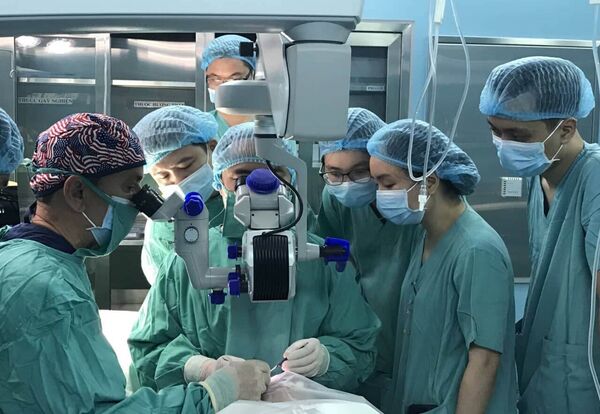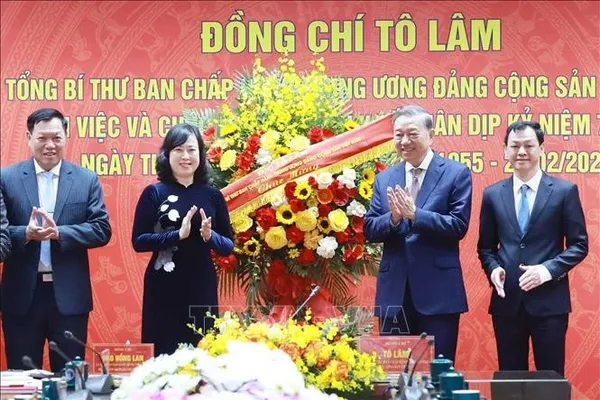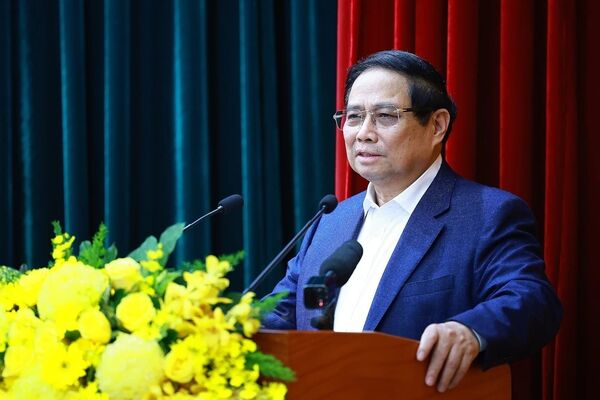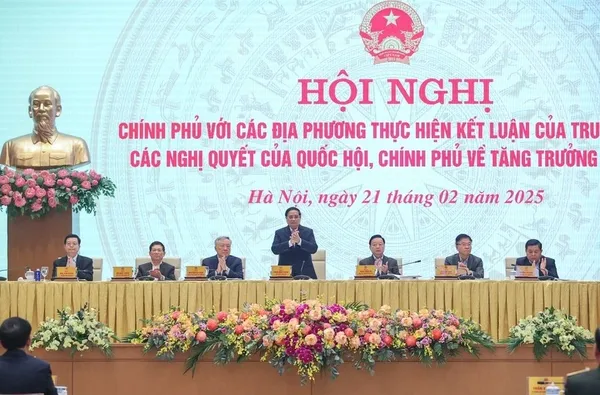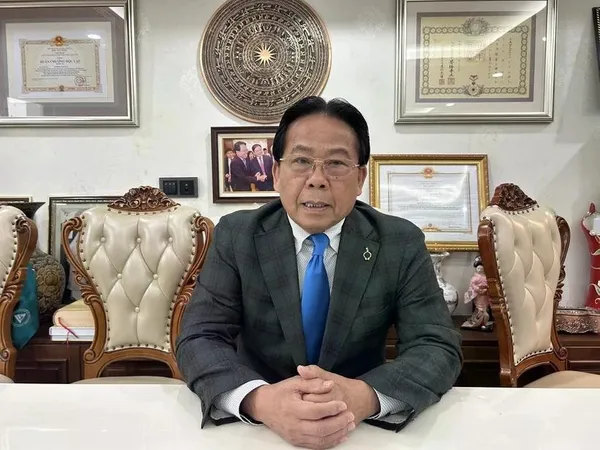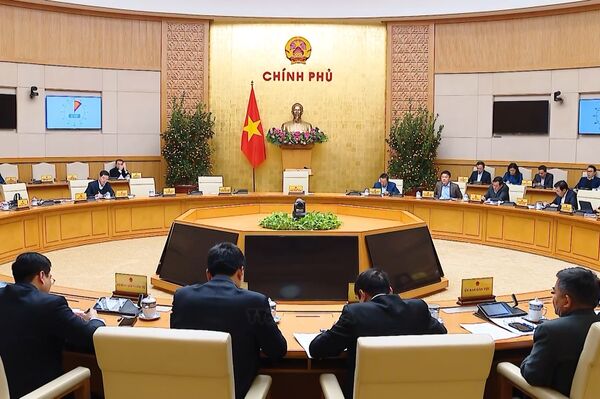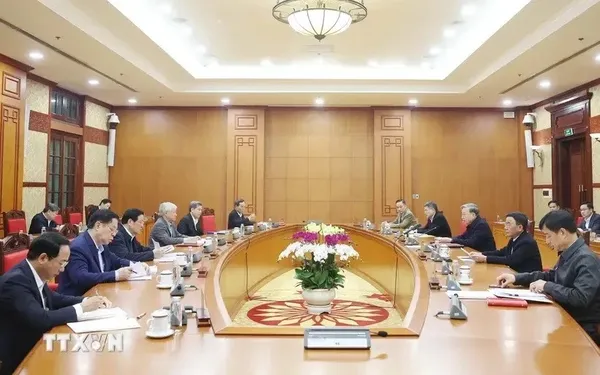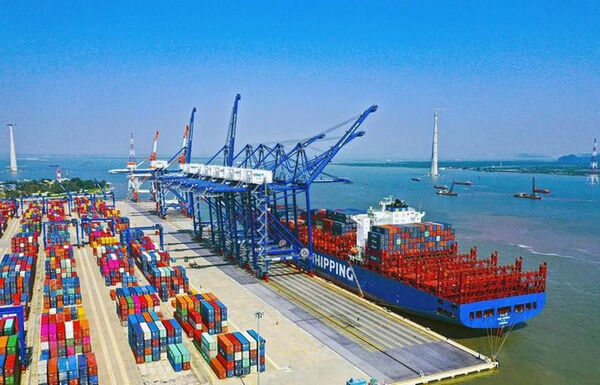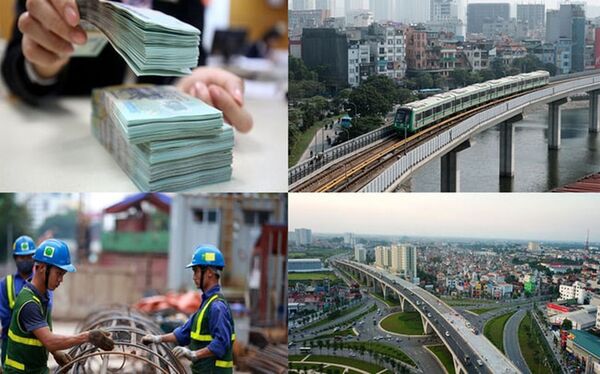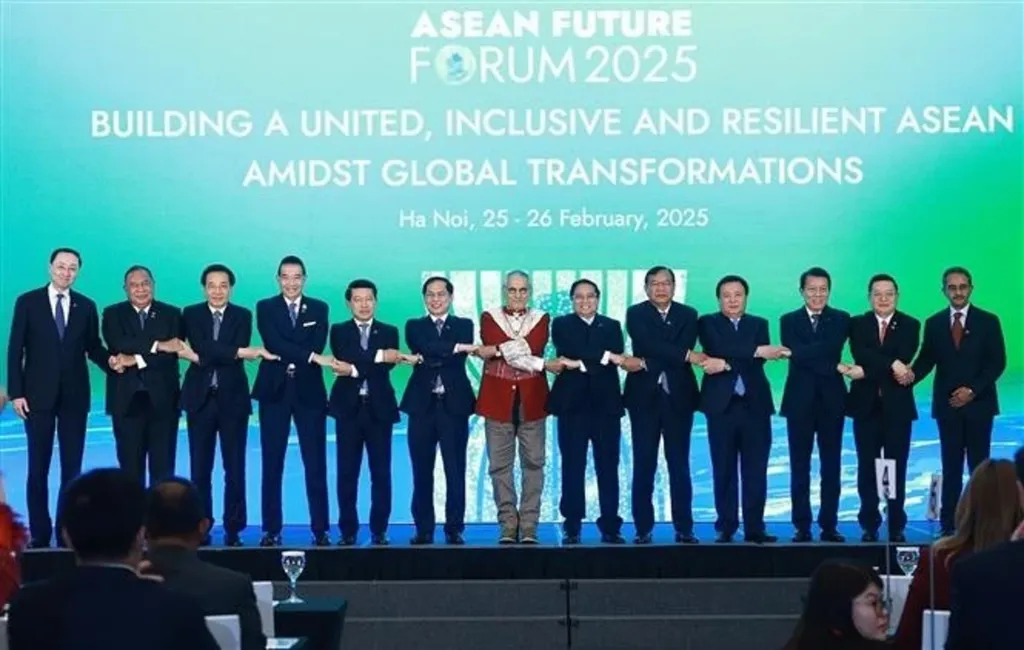 |
| Prime Minister Pham Minh Chinh (sixth, right) and heads of delegations attend the ASEAN Future Forum 2025 pose for a group photo. (Photo: VNA) |
Hanoi (VNA) - The second ASEAN Future Forum (AFF 2025), themed Building a United, Inclusive, and Resilient ASEAN amidst Global Transformations, kicked off in Hanoi on February 25, during which participants emphasised the need to strengthen intra-bloc solidarity to effectively respond to challenges.
Right after the keynote speech by Vietnamese Prime Minister Pham Minh Chinh, the President of Timor-Leste, the Deputy Prime Minister of Laos, and the ASEAN Secretary-General delivered important remarks at the forum.
Additionally, the Prime Minister of Thailand, the UN Deputy Secretary-General, and the President of the European Commission sent their messages to the event.
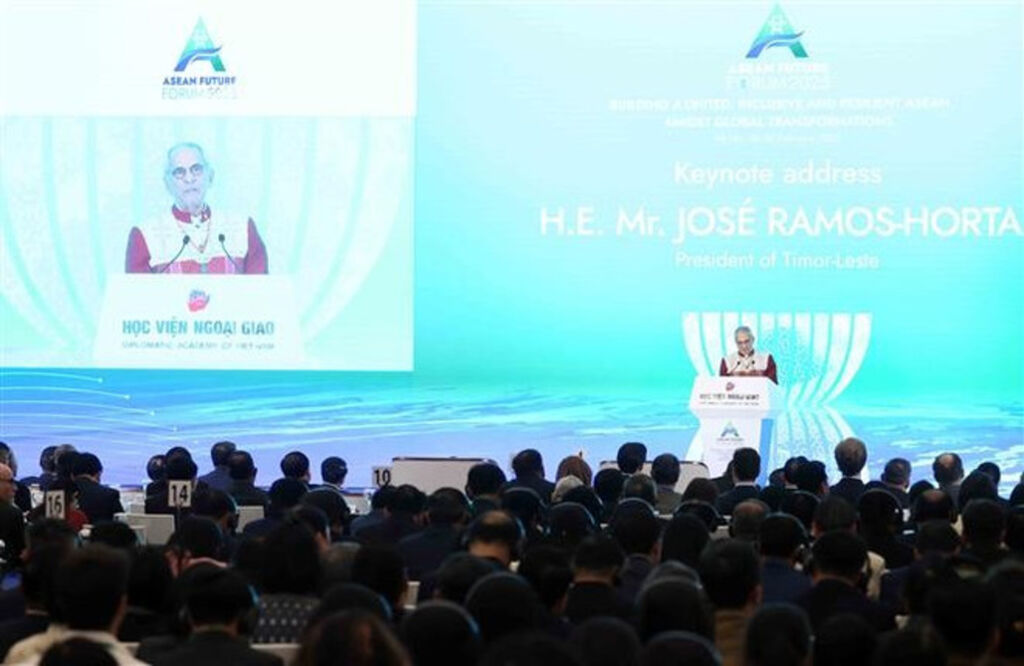 |
| President of Timor-Leste Jose Ramos-Horta speaks at the forum. (Photo: VNA) |
In their speeches, leaders of countries and international organisations emphasised ASEAN’s cooperation, solidarity, inclusivity, and resilience amid global uncertainties and significant transformations.
As an observer country on the path to full ASEAN membership, Timor-Leste’s President José Ramos-Horta, who attended AFF for the first time, emphasised the need for the bloc to enhance preventive diplomacy amid growing complexities to effectively prevent escalating conflicts and address issues such as those related to the East Sea and Myanmar, towards a more resilient, sustainable, and prosperous Southeast Asia region.
ASEAN’s development has been truly remarkable, Jose Ramos Horta said, noting that overcoming poverty, political instability, and other challenges, the group has emerged as a stable and dynamic economy that plays an important role in the international arena.
Reflecting on ASEAN’s journey since its establishment with many ups and downs, he said the bloc’s crucial role has been affirmed through solidarity and cohesion. Its institutions have been built to ensure institutional strength, a shared foundation, a common vision, unified principles, and the ability to anticipate and adapt, he added.
In her message to the forum, Thai Prime Minister Paetongtarn Shinawatra stressed that self-resilient ASEAN is an extremely important factor to deal with new challenges, aiming for sustainable and inclusive growth.
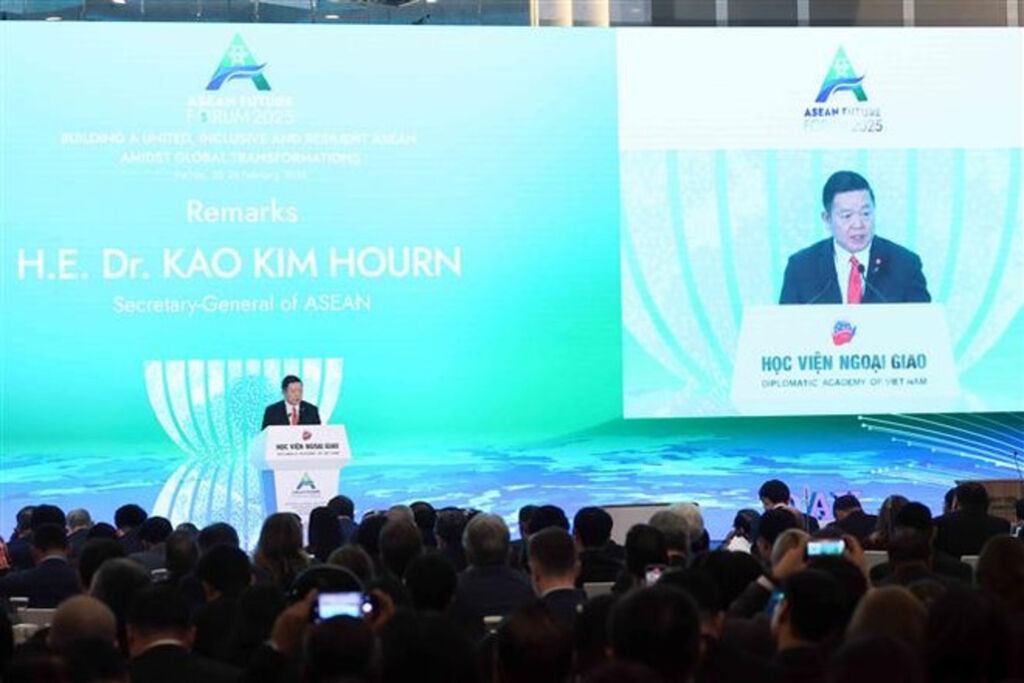 |
| ASEAN Secretary-General Kao Kim Hourn speaks at the forum. (Photo: VNA) |
ASEAN must strengthen coordination to address security threats, ensuring the safety and well-being of its people, and it should assert a common stance on regional and global issues based on shared interests and principles, Shinawatra said.
According to the Thai PM, ASEAN must seize all opportunities to bring about positive changes for its people and the region. The bloc should take concrete steps toward deeper economic development, digital transformation, and green transition; while responding to climate change, economic disruptions, and social volatility.
Thailand vows to actively contribute to building a united, inclusive, and sustainable ASEAN community in the current complex global context, Shinawatra stated, stressing that that with solidarity, the group can overcome all challenges and move toward a brighter future for its people.
Referring to the connection between Europe and Southeast Asia, President of the European Commission (EC) Ursula von der Leyen, in her message to the forum, stressed that despite geographical distance, the two regions share many similarities and believe in openness, free and fair trade, and effective partnerships that drive development and prosperity.
She said EU-ASEAN relations are closer than ever. This not only reflects ties between the two institutions but also highlights the practical benefits that their cooperation brings to the people of both regions.
The EC President stated that through the Global Gateway initiative, Europe is projected to invest 10 billion EUR (10.5 billion USD) in ASEAN countries by 2027. Trade relations between the two sides have also strengthened over time, with the EU currently being ASEAN’s third-largest trading partner. The EU has already signed free trade agreements with two ASEAN member states and is negotiating similar pacts with four others.
Highlighting Southeast Asia's immense potential for clean energy and green innovation, UN Deputy Secretary-General Amina J. Mohammed affirmed the UN’s commitment to supporting ASEAN in its pursuit of peace, prosperity, and sustainable development, turning global commitments into reality.
Lao Deputy Prime Minister Saleumxay Kommasith praised the theme of this year’s AFF, saying that it is highly relevant and timely as the world faces multidimensional opportunities and challenges arising from significant global transformations and rapid geopolitical and economic transitions that weaken multilateralism and hinder sustainable growth. He noted that these ongoing and future trends require ASEAN to respond effectively and innovatively to secure a stable future.
ASEAN Secretary-General Kao Kim Hourn expressed his hope that the forum would provide solutions to the bloc’s pressing challenges, from geopolitical crises and emerging technologies to climate change. Amid intensifying competition among powers, he recommended ASEAN to uphold its commitments to cooperation, maintain its central role, and capitalise on diplomacy and soft power in international partnerships.
The Secretary-General stressed that ASEAN’s resilience must start from inside, among its member states. This approach will benefit ASEAN across various dimensions, laying the groundwork for the bloc to become an attractive global partner. At a time when multilateralism is being challenged, ASEAN remains a symbol of regional cooperation, adaptability, and resilience, he stressed./.
